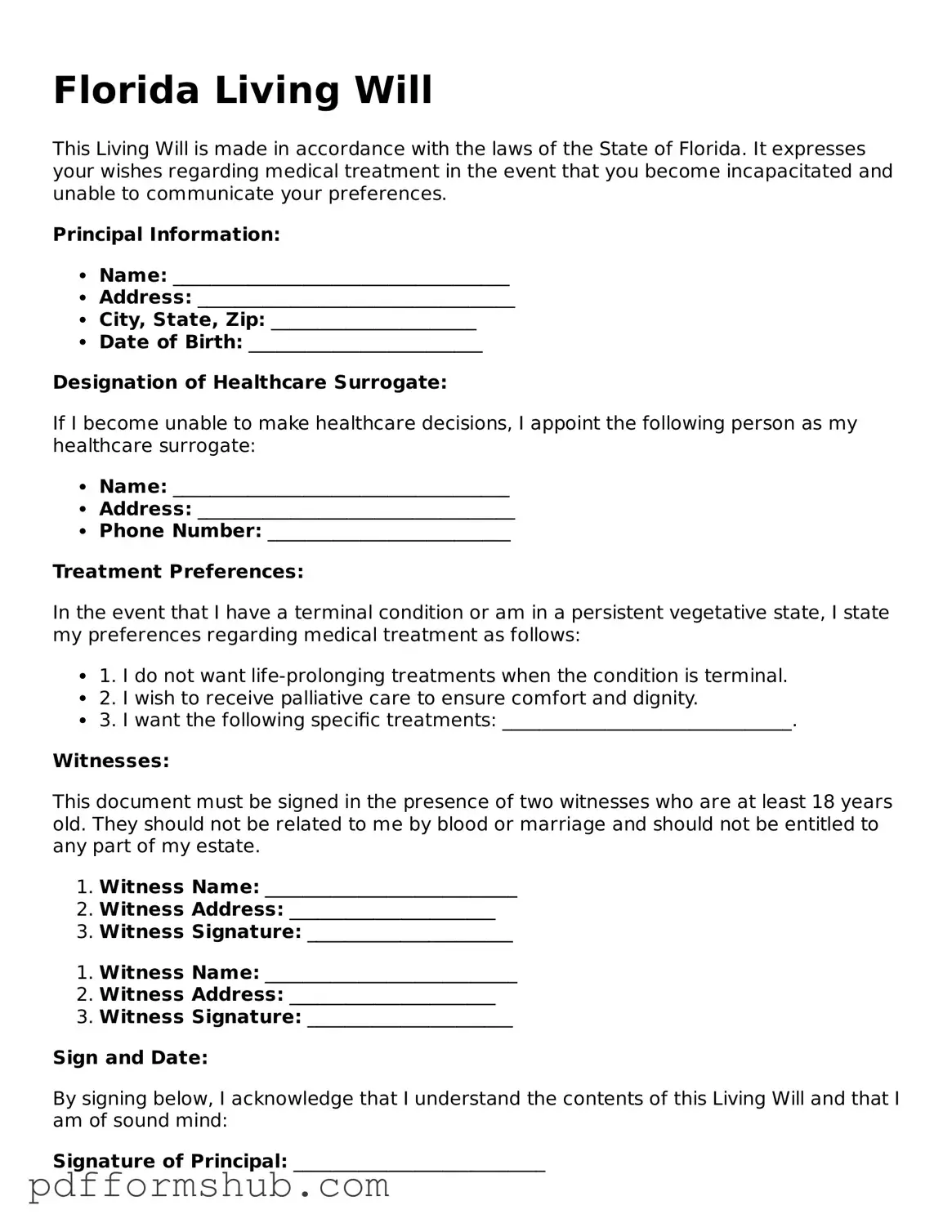Attorney-Verified Living Will Form for Florida State
A Florida Living Will form is a legal document that allows individuals to outline their preferences for medical treatment in the event they become unable to communicate their wishes. This form provides clarity and guidance to healthcare providers and loved ones during critical moments. Understanding its importance can help ensure that your healthcare choices are respected.
Take control of your future by filling out the Florida Living Will form. Click the button below to get started.
Customize Form

Attorney-Verified Living Will Form for Florida State
Customize Form

Customize Form
or
Free PDF Form
Short deadline? Complete this form now
Complete Living Will online without printing hassles.